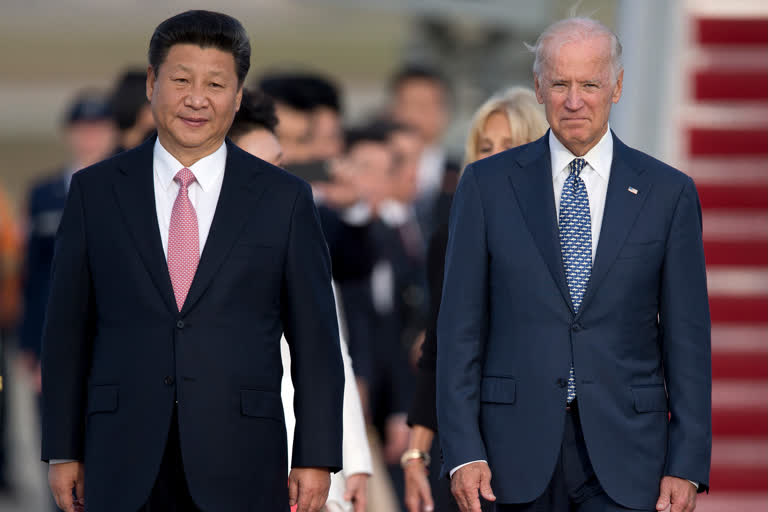Beijing:Chinese leaders hope Washington will tone down conflicts over trade, technology and security if Joe Biden wins the November 3 presidential election. But any shift is likely to be in style, not substance, as frustration with Beijing increases across the American political spectrum.
Both Republican and Democratic lawmakers and their constituents seem disinclined to adopt a softer approach toward China, possibly presaging more strife ahead, regardless of the election's outcome.
Despite discord on so many other fronts, both parties are critical of Beijing's trade record and stance toward Hong Kong, Taiwan and religious and ethnic minorities in Tibet and Xinjiang, where the ruling Communist Party has detained Muslims in political re-education camps.
Read:|US drops currency manipulation charge against China
The American public is equally negative. Two-thirds of people surveyed in March by the Pew Research Center had “unfavourable views” of China, the highest since Pew started asking in 2005.
Biden “would be savaged” if he tried to downplay complaints against Beijing, said Derek Scissors of the American Enterprise Institute, a Washington think tank.
Chinese leaders have been quieter about this election than during the 2016 presidential race when they favoured Trump over former Secretary of State Hillary Clinton. They despised Clinton for carrying out then-President Barack Obama’s foreign policy, which included pressuring Beijing on human rights. Trump’s public image of business success resonated with the Chinese public.
But a Biden presidency might restore a more predictable relationship after the shocks of Trump’s tariff war and his outreach to India, seen as a strategic rival, and Southeast Asian countries, with which Beijing has a series of territorial disputes, Chinese analysts say.
At the least, Biden’s policy ”won’t be as emotional and ridiculous as Trump’s," said Yu Wanli, a professor of international relations at Beijing Language and Culture University.
“Democrats appear less militant, so they may take more care to prevent even limited military conflicts and pay more attention to crisis management communication with China,” said Shi Yinhong of Renmin University in Beijing, one of the country’s most prominent scholars of international relations.
Biden, Obama's vice president in 2009-2017, leads in polls but Trump could win if he attracts enough voters in key states including Florida. Trump pulled off a similar upset in 2016 when he lost the popular ballot but won in enough states to secure the 270 votes required in the Electoral College that decides the election.
U.S. intelligence officials believe Chinese leaders don't want Trump re-elected, according to a statement by William Evanina, the top counterintelligence official. It didn't directly accuse China of trying to interfere in the election or to support Biden.
Read:|US-China relations appear at turning point
Trump shook up China's leaders by hiking tariffs on Chinese exports in 2018 over complaints Beijing steals or pressures companies to hand over technology. The White House has lobbied allies to exclude Huawei, China’s first global tech brand, from next-generation telecom networks on security grounds. Huawei’s access to American components and technology was cut off, threatening to cripple its global sales.
Trump is trying to bar Chinese social media companies from the United States, citing fears they might gather too much personal information about Americans. The White House is pressing video service TikTok to sell its U.S. operation and is trying to block companies from dealing with WeChat, the popular Chinese message service.
U.S. companies and trading partners have criticized Trump’s tariff war, which prompted Chinese retaliation that hurt American farmers and factory workers. But complaints that China steals technology and violates its market-opening commitments are widely shared. Beijing tried to recruit France, Germany, South Korea and other governments as allies against Washington but all refused.
Tariff hikes on Chinese goods “would probably be removed only gradually under Biden,” said Michael Hirson of Eurasia Group, a research firm, in a report.
Trump's tariffs were imposed to encourage manufacturers to shift jobs back to the United States, a cause long championed by Democrats.
